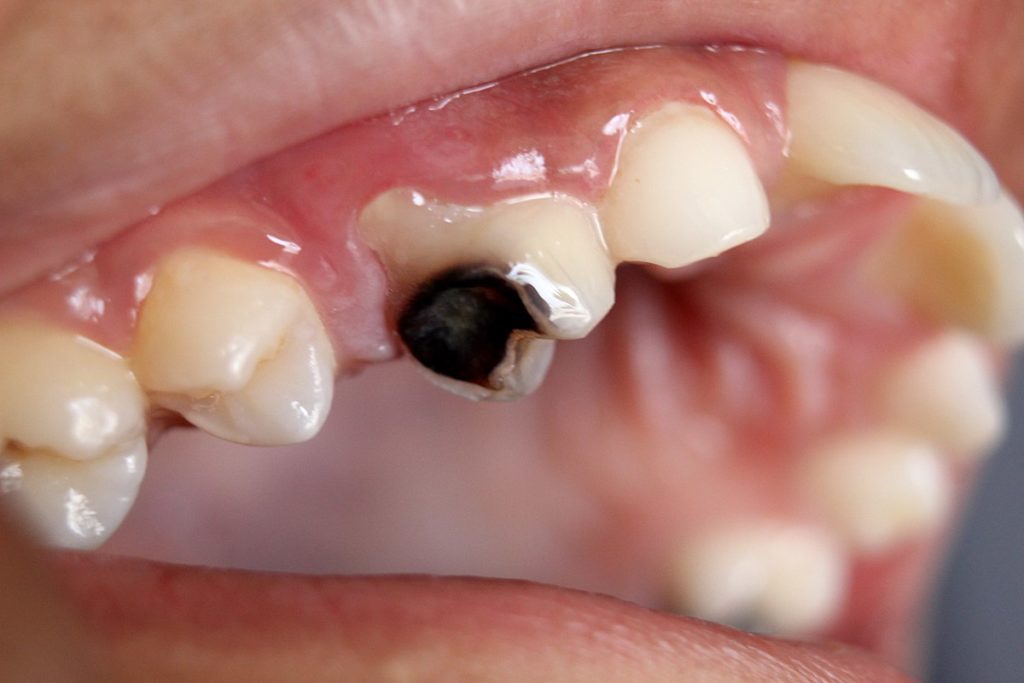Tooth decay is the breakdown of tooth structure that can impact the tooth’s dentin layer as well as its enamel or outer layer. Foods high in carbohydrates (sugars & starches), such as grains, cereals, milk, acidic beverages, fruits, cakes, and candies, stick to teeth and cause tooth decay.
These foods are broken down by oral bacteria, which then produce acids. Plaque, which adheres to the teeth, is created when bacteria, acid, food particles, and saliva mix. Cavities are holes in teeth caused by the acids in plaque dissolving the tooth’s enamel surface. Speak to a Plymouth dentist today.
How do you take precautions against tooth decay?
To prevent tooth decay:
- Use toothpaste that contains fluoride to brush your teeth at least twice a day. Brush ideally after every meal, but especially right before bed.
- Use dental floss or interproximal cleaners like Interdental Brushes, Plaque Removers, or Sulcabrush to clean in between your teeth on a daily basis.
- Use a mouthwash containing fluoride to rinse every day. Certain rinses also contain antiseptic components to aid in the destruction of plaque-causing bacteria.
- Consume well-balanced meals and avoid excessive snacking. Steer clear of carbohydrates, which can stick to your teeth, like candy, pretzels, and chips. After consuming sticky foods, promptly brush your teeth.
- See your dentist about applying extra fluoride to strengthen your teeth.
- To prevent decay on the chewing surfaces of your back teeth (molars), ask your dentist about dental sealants, a plastic protective coating.
- Sip fluoridated water. Children should drink at least a pint of fluoridated water every day to prevent tooth decay.
- For routine dental cleanings and examinations, make an appointment with your dentist.
Researchers are creating fresh strategies to stop tooth decay. According to one study, chewing gum containing xylitol as a sweetener temporarily slowed the development of bacteria that cause tooth decay. Furthermore, a number of materials that release fluoride gradually over time are being investigated in an effort to stop additional decay. These substances would be inserted in tooth pits and fissures or in the spaces between teeth. Research is also being done on mouthwashes and mouth rinses that can “heal” or reverse early cavities.
Tooth decay can result from a variety of factors, but bacteria are the main culprit. It is crucial to realize that everyone’s mouths contain bacteria. Plaque, a thick layer of bacteria on our teeth, is created when this bacteria is allowed to remain on them. The bacteria can start creating acids that eventually decrease our tooth enamel when we do not take proper care of our oral health. Additionally, cavities are caused by these acids when they come into contact with the tooth’s outer layer.

